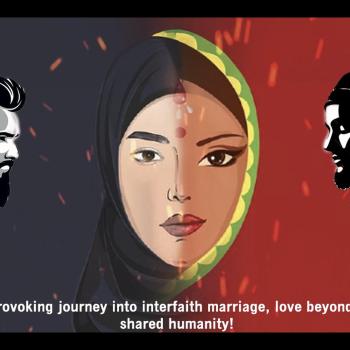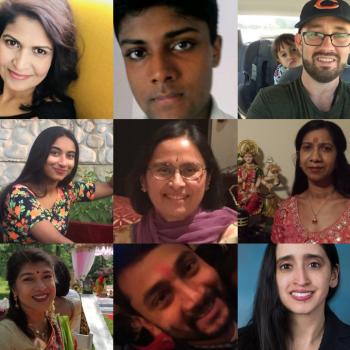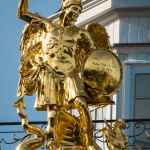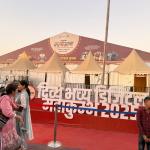Agni is a very old God and one that was heavily featured in the Vedas. By the time of the Upanishads, his importance had lessened considerably. His name is synonymous with fire and the frequent use of sacrifices into fire in Hindu ritual all connect to him.
Agni is the first word of the first prayer of the first Veda. He is said to be a messenger between humans and Gods.
While some Gods are distant and in the realm of the subtle world, others personify aspects of the world, as Agni does with fire. He is more an elemental God than, say, Brahman (who some legends say is his father. Other legends say Agni’s father was the “cosmic man” or the “sky father”). Though now seen as an aspect of Brahman, evidence shows that Agni was worshiped before the current Big Three gained popularity. Agni seems to come from an earlier time, a time when people were worshiping aspects of nature rather than yet looking into deeper philosophical ideas.
Some people do explain that the reason why these major Gods of the Vedas are not so prevalent in worship today is because in reality, all these Gods are One. All the Vedic Gods, they explain, were and are manifestations of Brahman. As the RigVeda says, “The Truth is One. Sages call it by many names.”
Others say that Devas like Agni and Indra are not Gods but more like angels or demi-gods. They are not on the same level as the trinity of Brahman, Vishnu, and Shiva.
It kind of depends how you see religious history. Is it unchanging? Have we always known from the time of the earliest sages what the Truth was? Or did it take a process of evolution for early settlers in the Indus Valley to come to understand the world and the nature of the Self? These are questions that I don’t know the answer to.
In Ayurveda, Hindu medicine, Agni is said to be responsible for the sustaining of life as fire is seen as a part of the digestive process.
The main place that you’ll still find Agni is in the ceremonies marking big life moments such as weddings and funerals. When Brad and I walk around the sacred flame seven times on our wedding day, we will be invoking Agni.
In the context of Vedic worship, no god was as functionally important as Agni, and few ceremonies were considered complete without the performance of some oblations to him. Agni was essential in sacrificial ceremonies, where he was the deity of primary invocation. Since Agni was related to the three parts of the cosmos, a number of fire hearths were corresponding to these various parts. –http://www.newworldencyclopedia.org/entry/Agni
Agni is in everyone’s hearth; he is the vital spark of life, and so a part of him is in all living things; he is the fire which consumes food in peoples’ stomachs, as well as the fire which consumes the offerings to the gods. He is the fire of the sun, in the lightening bolt, and in the smoke column which holds up the heavens. The stars are sparks from his flame. –http://www.pantheon.org/articles/a/agni.html
Learn More:
- http://en.wikipedia.org/wiki/Agni
- http://www.newworldencyclopedia.org/entry/Agni
- http://www.pantheon.org/articles/a/agni.html
















